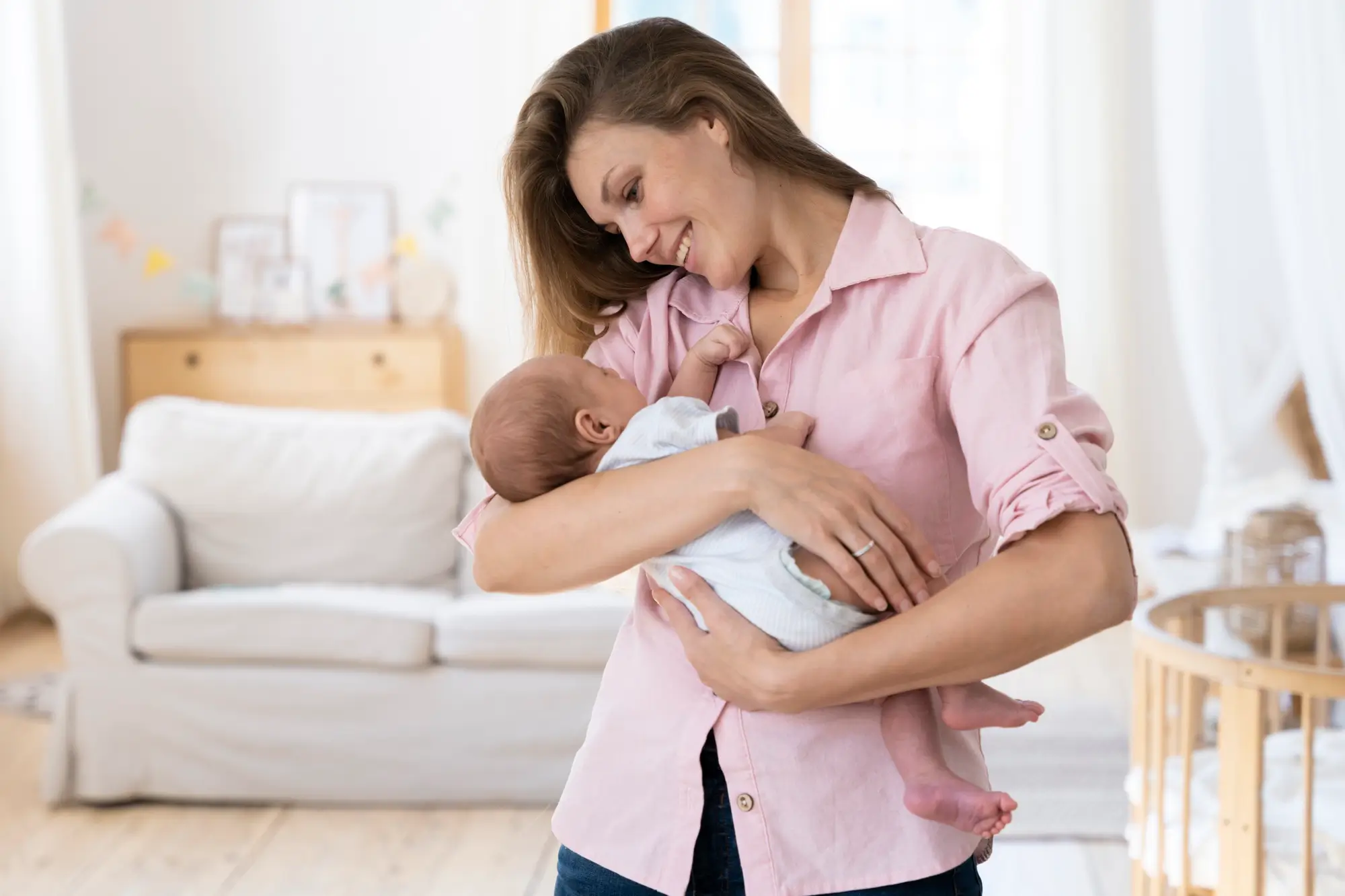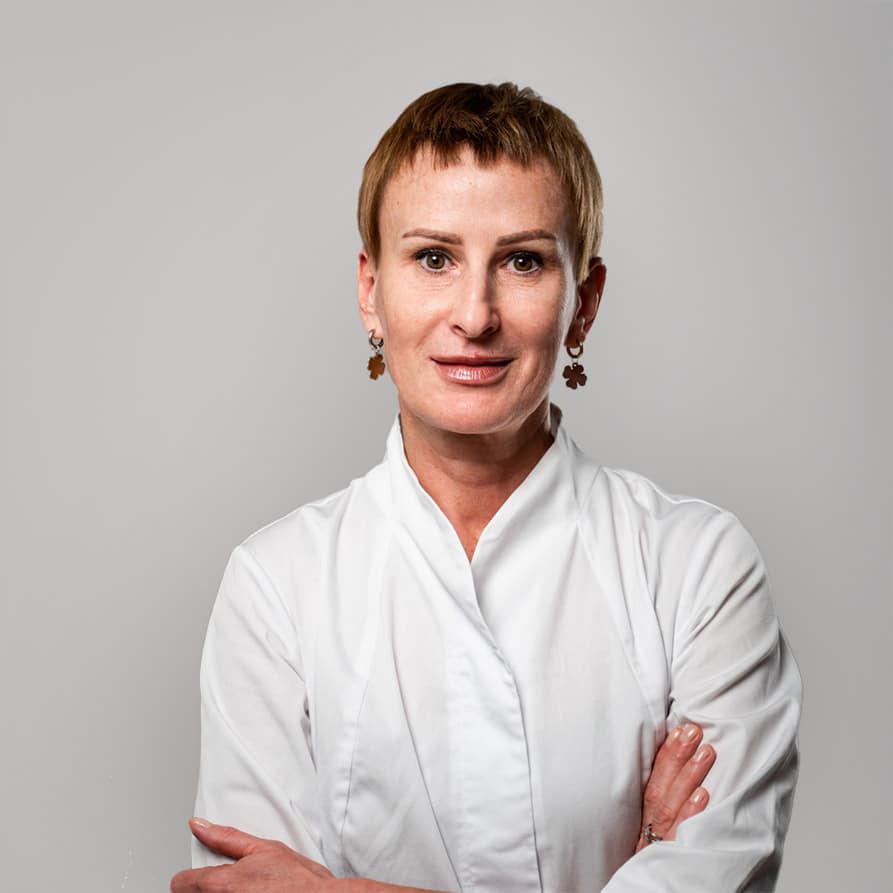The realities of a modern woman’s life are such that the age at which the first child is born has shifted significantly. Having a first child after the age of 30 is not yet a routine practice, but it is already very common among married couples. However, it has shifted only in the social aspect, not in the biological one. Women’s physiology has remained unchanged: the way nature intended it to be. The body functions according to a clearly defined biological program. It is only it that determines how old a woman can give birth – and it cannot wait until we fully realize ourselves and remember the need to procreate.
That is why the main task of every couple is to make a timely decision about having a child when female and male fertility is at its peak and the genetic information in the germ cells is not damaged by age-related changes. The mission of reproductive specialists is to help infertile couples give birth to a healthy child at any reproductive age, using all the available capabilities of the body and involving all available technologies. This is the mission of the IVMED Reproductive Medicine Clinic.
At what age can you get pregnant: biological and medical aspects
Influence of age on the number and quality of eggs
With age, the number of antral follicles in the ovaries decreases exponentially. And along with them, the number and quality of eggs, each of which could give rise to a new life, decreases.
Menopause and the end of the reproductive period
During menopause, ovarian function gradually fades away:
- the number of oocytes in the follicles decreases;
- menstrual cycles disappear;
- ovulation stops;
- age-related endometrial involution (atrophy) occurs.
And although the ovaries continue to synthesize hormones in minimal amounts, they are no longer needed for reproductive function, but for the smooth adjustment of the body from youth to old age. This residual endocrine function of the ovaries helps older women avoid hormonal disorders, protect the cardiovascular system from sudden fluctuations in blood pressure (the so-called “hot flashes”), and age harmoniously and aesthetically.
How old can you get pregnant without health risks
The optimal age for the birth of the first and second child
The main reason for all the risks associated with having children at an older reproductive age is the limited biological age of eggs. Because unlike men, who have spermatogenesis every 72 days, the ovarian reserve is formed during fetal development and grows up with the girl. Therefore, the older a woman is, the older her eggs are. If a woman is 45 years old, her oocytes are also 45 years old.
Therefore, we have a clear answer to the question of how old you can get pregnant without risking yourself and your baby:
1) It is advisable to have your first child at the age of 20-28;
2) the second child – up to 35 years of age.
Risks to maternal and child health
Not every pregnant woman of older reproductive age will necessarily have complications, but this is a risk group, the most common of which are:
- genetic risks – in women under the age of 30, the probability of having a child with Down syndrome is 1:1500 cases, and in women over 40, 1:40 cases;
- cardiovascular risks – the load on the heart and blood vessels of a pregnant woman aged 36-45 increases 2-4 times, and after 45 years of age – 10-20 times;
- Gestational risks – complications of pregnancy and fetal development disorders (early gestosis, gestational diabetes, preeclampsia, fetal hypoxia, placental abruption, frozen pregnancy, spontaneous miscarriage at an early stage or premature birth);
- Obstetric risks – complications during childbirth that threaten the health of the mother and newborn.
How to prepare for pregnancy after 35 years
After making the decision to become parents in adulthood, it is necessary to consult a reproductive specialist. Preparation for pregnancy necessarily involves:
- Couple karyotyping is a genetic diagnosis that examines the karyotype (chromosome set) of a man and a woman to identify possible chromosomal abnormalities and the risk of passing them on to offspring.
- Controlling body weight is an important factor, as overweight and obesity impair egg quality, endometrial sensitivity, and female fertility. Normal weight prevents such pregnancy complications as gestational diabetes, preeclampsia and microsomia, as well as a predisposition to diabetes in the unborn child. Our clinic has created a special program “Medical Weight Correction”: a comprehensive package of services recommended to improve reproductive function in case of female infertility and preparation for IVF.
- Therapeutic preparation – drug therapy if necessary to normalize hormonal levels, hemostasis (blood clotting) and eliminate the immunological factor (if the couple has a relationship with the HLA antigen).
- Surgical preparation – surgeries to remove fibroids and polyps of the uterus, endometrioid cysts (if they are the cause of pregnancy failure).
- Psychological preparation means faith in a successful outcome, trust in your partner and doctors. Our clinic employs reproductive psychologists who help couples achieve the positive attitude necessary for effective treatment.

Pregnancy after 40 years
Assisted reproductive technologies: a chance for pregnancy in adulthood
Assisted reproductive technologies (ART) are methods of diagnosing and treating infertility that are used for reproductive disorders in women and men. This is not only a choice for those “over 40” – because reproductive potential is assessed individually and does not always depend on age.
However, if a woman has already reached the age of childbearing, the following ART will help her become a mother (the choice of method depends on medical indications):
1) in vitro fertilization using own oocytes (IVF);
2) Pronuclear transfer (PNT) or mating spindle transfer (MST) are innovative alternatives to egg donation to preserve the patient’s DNA and utilize the mitochondrial potential of the female donor;
3) oocyte donation;
4) embryo donation or surrogacy (in the most difficult cases).
IVF and donor eggs – when necessary
IVF with donor eggs is a program for those women who, due to advanced reproductive age, premature ovarian depletion, ovarian surgery, or hereditary diseases with a risk of transmission to their offspring, do not have their own oocytes of adequate quality. The only prerequisite for a successful pregnancy with donor oocytes is a healthy endometrium and uterus capable of implanting and carrying an embryo.
Late pregnancy: psychological and social aspects
Benefits of pregnancy in adulthood
Despite the possible risks, late pregnancy has significant benefits:
- conscious pregnancy – a girl or woman aged 30+ is a formed and self-sufficient person who has already found her vocation, self-realized, is aware of social responsibility and knows exactly whether she needs a child;
- Confidence in relationships – women of older reproductive age are confident in their feelings when they want to get pregnant from a particular man;
- social stability – a mature person has already achieved a certain status and can fully support a family and children.
Benefits of pregnancy at a young age
Pregnancy at a young age, even if it is achieved not naturally but through IVF, has undeniable benefits for the health of mother and child:
- more chances to conceive a child – because the ovarian reserve of the ovaries contains a large number of high-quality eggs, the highest frequency of ovulation occurs, and female fertility is at its peak;
- the birth of a genetically related child – because at a young age it is much easier to achieve pregnancy on your own oocytes;
- no genetic risks for the fetus – because young eggs do not contain the chromosomal abnormalities that occur after the age of 35;
- normal pregnancy without complications and minimal obstetric risks during childbirth – since the older the mother’s body is, the longer it is exposed to adverse external factors and chronic diseases.
Advice for those who are planning to give birth, but not now
If you are definitely going to have children, but not now, but in the future, we will give you some important tips on what you should do today:
- assess your ovarian reserve – folliculometry (ultrasound of the ovaries) and a blood test for antimullerian hormone (AMH) will help you understand your egg reserve and how much time you have to have a baby;
- take advantage of the program of deferred motherhood – cryopreservation of oocytes at a young age will allow you to avoid infertility and give birth to a genetically related and healthy child when you are ready for it;
- take care of your endometrium – if you are diagnosed with chronic meto-endometritis or endometriosis, treat it now to ensure successful implantation and normal intrauterine development of the embryo in the future;
- lead a healthy lifestyle without bad habits, chronic stress, lack of sleep and unbalanced diet – this is a powerful epigenetic factor that will protect your genetic material from adverse external factors and pass it on to your child intact.
What is the optimal age for a woman to have children?
From the point of view of physiology, the best time of pregnancy for the birth of a healthy child is between the ages of 20 and 35.
This does not mean that a woman cannot become a mother in adulthood. After all, nature does not exclude individual fluctuations in the age at which one can give birth. In addition, there is always the possibility of conceiving and giving birth to children with the help of reproductive technologies: in particular, the program of deferred motherhood. And in the most difficult cases, through donation programs or surrogacy. However, a physiological pregnancy achieved naturally at a young age has been, is, and will be the best option for women’s self-realization and procreation.
The team of doctors at the IVMED Fertility Medicine Clinic is ready to accompany you at all stages of family planning: from deciding to have a child to a comprehensive examination, in vitro conception and pregnancy management. Pregnancy planning and professional preparation for conception and childbearing are the key to success in any clinical case of infertility. Such preparation allows women to realize their motherhood in good physical shape and psychological readiness.



